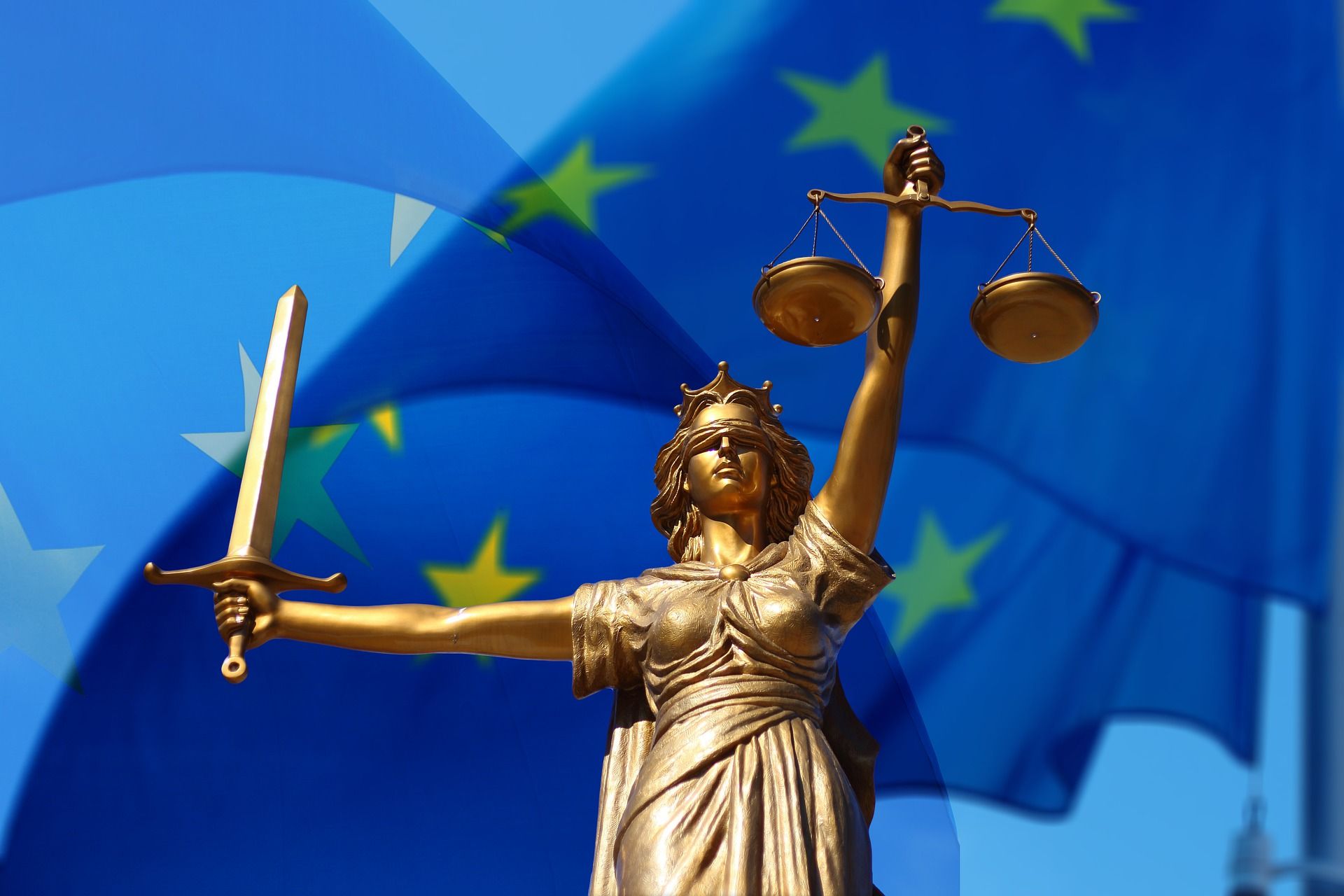Last July 8, the Commission published its sixth annual Rule of Law Report, examining rule of law developments in all Member States. This is the first report under the Commission’s new mandate. It consolidates the successful engagement with Member States based on a preventive and dialogue-based approach to strengthen the rule of law, and it is an important incentive for reform.
The Rule of Law Report and the annual rule of law cycle contribute to the resilience of Europe’s democracy, security and economy in a global environment where the respect for fundamental rights and democratic systems are increasingly under pressure. It is therefore essential for the EU to reaffirm its commitment to the rule of law and to take concrete steps to promote and defend it, on our continent and across the globe. As it did in 2024, the Report does not only cover 27 Member States but also includes four country chapters dedicated to developments in Albania, Montenegro, North Macedonia and Serbia.
This year’s Report confirms that there is a positive trajectory in many Member States, as important reforms have been taken forward across the four key areas covered by the report – justice, anti-corruption, media freedom and institutional checks and balances. While challenges remain in some Member States, and in a few cases the situation is serious, the overall engagement with the process remains strong, and Member States have addressed a substantial number of the 2024 recommendations, in full or in part.
Respect for the rule of law is also essential for delivering policies that promote competitiveness through the Single Market and empower citizens to actively participate in both society and the economy. The rule of law is an important consideration for companies operating across borders. Businesses, in particular, small and medium-sized enterprises, need a stable and predictable economic environment. As set out in President von der Leyen‘s Political Guidelines, this year’s report puts a particular emphasis on issues that have a direct link with the proper functioning of the Single Market, such as sound lawmaking, public procurement rules and the stability of the regulatory environment.
The Report looks ahead to an evolving European Union. The new generation of EU spending instruments, to be presented as part of the next multiannual financial framework, will ensure that compliance with the principle of the rule of law remains a must for EU funds. EU financial support for investment and reforms to promote the rule of law can offer real added value. This can feed into a broader effort to track the effective implementation of recommendations issued in the Report.
Key findings this year:
Justice systems
Many Member States have advanced on justice reforms over the last year. Measures include strengthening the independence of Councils for the Judiciary, additional safeguards for judges’ appointments and autonomy of prosecutors, as well as for the quality and efficiency of justice systems. Nevertheless, reforms are progressing at a slower pace in some Member States, and serious concerns remain in certain cases. Although efforts are being made across the board, there is a strain on resources for the justice systems in many Member States, impacting on the quality and efficiency of justice. In the enlargement countries, efforts to implement judiciary reforms, to strengthen accountability, and to improve efficiency have continued, but undue influence and attempts to undermine judges’ independence need to be addressed.
Anti-corruption frameworks
The fight against corruption remains essential for maintaining the rule of law and preserving citizens’ trust in public institutions. Most Europeans consider corruption to be unacceptable, according to the results of the 2025 Eurobarometer surveys on citizens’ and businesses’ attitudes towards corruption in the EU. The Report shows that several Member States have developed new anti-corruption strategies and strengthened their institutional capacity, including by increasing the resources for law enforcement, prosecution services and the judiciary. At the same time, further action is needed to strengthen preventive frameworks, such as those related to lobbying and conflicts of interest, as well as to ensure the effective investigation, prosecution and final judgments of corruption cases. In the enlargement countries, legal and institutional frameworks were strengthened, showing resilience to undue pressure in some cases, while the investigation, prosecution and adjudication of corruption cases – including high-level cases – need to be further improved.
Media freedom and pluralism
Media freedom and pluralism are central elements of a society based on the rule of law and to ensuring democratic accountability. Reforms are under way in Member States to align national laws with the new rules under the European Media Freedom Act (EMFA). Many Member States are undertaking reforms to strengthen the independent functioning and financing of public service media and to improve fairness and transparency of state advertising allocation. Additionally, several national media regulators are expanding their competences to also comply with the Digital Services Act (DSA). Increasing attention is given to the safety and protection of journalists, amidst continuing threats, with Member States setting up or continuing to operate support structures or strengthening the legal protection of journalists. At the same time, further action is needed to address concerns regarding the safety of journalists as well as improve safeguards for the independence of some media regulators and public service media, increase the transparency of ownership and ensure better fairness and transparency in the allocation of state advertising. In the enlargement countries, there are also concerns in relation to the politicisation of media regulators and the financial sustainability of public broadcasters, as well as with the appointment of the broadcasters’ leadership.
Institutional checks and balances
Reforms are underway in a number of Member States to strengthen checks and balances, including by better including stakeholders in the legislative process and improving the quality of legislation. Yet, unstable, fast-changing laws – sometimes drafted without stakeholders’ input – create legal uncertainty for businesses and citizens alike. While the report finds that a majority of Member States continue to ensure an enabling and supportive framework for civil society, obstacles remain in a number of Member States related to funding or registration requirements. However, in some Member States civil society organisations are facing serious challenges, being subject to excessive financial restrictions or controls or inadequate protection. In the enlargement countries, challenges to legislative processes and ineffective public consultations limit inclusive governance. Challenges also remain regarding the systematic follow-up to recommendations of the Ombudsperson institutions and other independent bodies.
Single Market dimension
Across the four pillars, the Report emphasises the impact on the functioning of the Single Market and the operating environment for businesses. An effective justice system, the fight against corruption, good governance, legal certainty and sound lawmaking all have a significant economic impact, shaping the business environment and guiding investment decisions. Across the four pillars, the report emphasises how the issues identified impact the functioning of the Single Market and the operating environment for businesses. The country chapters report for example, on the specialisation of courts and judges to handle commercial cases; the mechanisms to enforce judicial decisions; measures to prevent corruption in public procurement; transparent funding for media; and the stable regulatory environment necessary for business to operate in predictable conditions
Next steps
The Commission now invites the European Parliament and the Council to continue general and country-specific debates on the basis of this report, also using the recommendations to further examine how concrete progress can be made. The Commission also calls on national parliaments, civil society and other stakeholders to continue the national dialogue on the rule of law, as well as at European level, with increased citizen engagement.
The Commission invites Member States to address the challenges identified in the Report. It stands ready to assist them in their efforts to continue the implementation of recommendations. For enlargement countries, the Commission will continue to follow up on the issues identified, including in its next annual reports on enlargement. Additional enlargement countries may be included in the Rule of Law Report as and when they are ready.
As President von der Leyen committed in her Political Guidelines 2024 – 2029, the Commission will continue to improve its monitoring and reporting, and to strengthen checks and balances, notably by tracking the implementation of recommendations.
Background
The annual Rule of Law Report is the result of close dialogue with national authorities and stakeholders. The Report covers all Member States and four enlargement countries on the basis of the same objective and transparent methodology, examining the same set of issues in each country.
The 2025 Report includes a Communication examining the situation in the EU as a whole and 27 country chapters looking at significant developments in each Member State. It also includes four country chapters looking at developments in the selected enlargement countries. The Report also includes an assessment of last year’s recommendations to the Member States, and, on that basis, once again provides specific recommendations addressed to all Member States.
The Report is at the centre of the annual Rule of Law Cycle. This yearly cycle is preventive: it serves to promote the rule of law and aims to prevent the emergence or deepening of problems. It is separate from the other elements in the EU’s Rule of Law Toolbox and complements, but does not replace the Treaty-based mechanisms allowing the EU to respond to more serious rule of law-related issues in Member States. These tools include infringement proceedings and the procedure to protect the founding values of the Union under Article 7 of the Treaty on European Union.
Since 2020, several new EU initiatives have raised common standards in areas with direct relevance for the rule of law, drawing on the results of monitoring in the context of this report. This includes the European Media Freedom Act, which seeks to address a number of systemic gaps identified in the media regulatory landscape, and the Anti-Corruption Package, which includes proposals for new legislation to combat corruption in the EU and to strengthen the EU sanctioning regime for corruption in the EU’s external dimension.
The inclusion of enlargement countries in the 2024 Rule of Law Report supports these countries’ reform efforts to achieve irreversible progress on democracy and the rule of law ahead of accession, and to guarantee lasting high standards after accession. Albania, Montenegro, North Macedonia and Serbia participate in the Rule of Law Report exercise, reflecting the progress made in their respective accession processes. As President von der Leyen announced in her Political Guidelines 2024 – 2029, other accession countries will be included in the Rule of Law Report as and when they are ready.
More information: European Commission







Leave a Reply